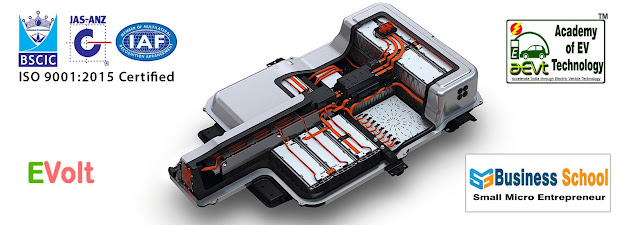Post Graduate Program in Electric Vehicle Powertrain
Electric vehicles are becoming a popular alternative to traditional internal combustion powered vehicles. From savings money on fuel, to reducing one’s carbon footprint, there are many reasons why today’s consumers are demanding electric cars.
With the expected rise in electric vehicle production it makes sense for managers, marketers, and consumers to gain a better understanding of the source fueling the battery electric car. This article offers an overview of the EV powertrain components, how they work together, and how they compare to the internal combustion engine in value.
Global Advanced Training and Educational Trust (GATE Trust) is an academic institute and its unit Institute of Solar Technology (IST) and Academy of EV Technology (AEVT) India top Entrepreneurship Development Institute.
With the demand rising exponentially, a significant skill gap is also observed in the industry. Companies are finding it difficult to find the right talent for positions like Analyst, Project Finance, Renewable Energy Finance Project Manager and other similar roles. To address this skill gap, Institute of Solar Technology and UPES in India have come together as the academic partner to bring quality education and industry exposure to students and working professionals interested to tap the emerging opportunities in this sector.
Electric vehicles are an emerging field so that while professionals with the right experience and skills existed in the market, finding and engaging with them would not be without its challenges. Electric Vehicle Powertrain program intends to make an exceptional professional Ev EVSE development in Electric Vehicle sector.
Services:
> Powertrain and complete vehicle concept of hybrid, plug-in hybrid and electric vehicles as well as high-voltage batteries
> Modeling and simulation of electric and hybrid powertrain systems
> Simulation of driving performance and consumption for optimization of the complete concept/vehicle
> Representation of demonstrator vehicles
> Concept, development and testing of electric motors
> Development, testing and application of inverters
> Development, manufacturing and testing of high-voltage batteries
> Battery system development
> Development of customer-specific battery management systems (BMS) and electric vehicle management systems (EVM)
> Creation and execution of MIL/HIL/SIL simulations
> Model-based function development
> Component testing and overall vehicle



